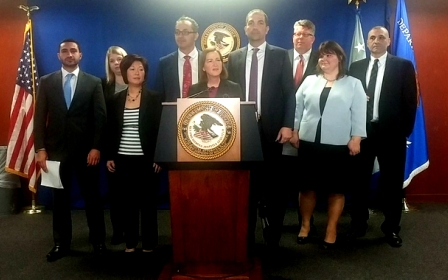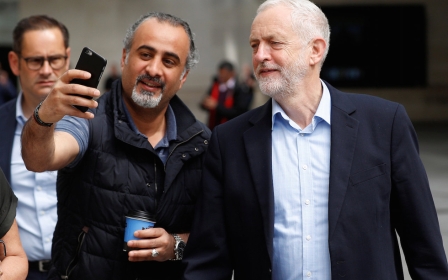US probing NJ town over mosque denial as another town settles

The US Department of Justice has opened an investigation on a New Jersey city's rejection of a planned mosque, a spokesman confirmed on Tuesday.
The US Attorney's office in New Jersey, in conjunction with members of the department's civil rights headquarters in Washington, DC, is examining whether officials in Bayonne, New Jersey, properly denied plans to build a mosque, according to Matthew Reilly, a spokesman for the office.
'Federal law protects people of all religious communities from discrimination and unlawful obstacles when they seek to build a place of worship'
- Tom Wheeler, Justice Department
The Bayonne Muslims, the group seeking to construct the mosque, filed a federal lawsuit against the city last week.
News of the federal probe came on the same day that another New Jersey municipality, Bernards Township, agreed to pay $3.25 million to resolve allegations by the US government and a Muslim group that the town illegally rejected plans for a mosque.
The agreement between Bernards, which is located about 48 km west of New York City, and the US Department of Justice will allow the Islamic Society of Basking Ridge to build a new prayer facility.
Federal law prohibits local governments from imposing an undue burden on religious exercise through land use regulations.
Bernards’ governing body voted 4-1 last week to approve settling separate lawsuits filed last year by the Justice Department and by the Islamic Society, but the terms of the deal were made public only on Tuesday.
The town did not admit any wrongdoing under the agreements.
The Justice Department complaint said the town's planning officials deliberately set out impossibly strict requirements that the Islamic Society could not meet, after members of the public raised objections based on anti-Muslim bias.
The Islamic Society spent four years seeking approval, including 39 separate hearings.
"We look forward to welcoming people of all faiths and backgrounds to our mosque," said Mohammad Ali Chaudry, president of the society.
A spokesman for the town, Michael Turner, said in a statement: "The township maintains that the denial of the planning board was based on accepted land use criteria only."
The Council on American-Islamic Relations in New Jersey welcomed the Bernards Township settlement.
“Several New Jersey Muslim communities have been targeted by local anti-Muslim opponents to new mosque construction who attempted to hide their bigoted intentions behind zoning technicalities,” CAIR-NJ Executive Director James Sues said in a statement.
He added that anti-Muslim bias in Bernards Township was clear.
“We hope this case sends a message to other communities that freedom of religion is a guaranteed constitutional right, and that the Muslim community is prepared to rigorously defend its rights,” Sues said.
The Justice Department also hailed the settlement.
“Federal law protects people of all religious communities from discrimination and unlawful obstacles when they seek to build a place of worship,” Acting Assistant Attorney General Tom Wheeler said in a statement. “Through this agreement, the Islamic Society of Basking Ridge and its members will be able to build a mosque and exercise the fundamental American right of freedom of worship.”
Bernards Township will pay $3.25 million in damages and legal fees to the Islamic Society. The law firm that represented the Islamic Society, Patterson Belknap Webb & Tyler, said it would donate the fees it receives in the settlement to charity.
Patterson Belknap also represents the Bayonne Muslims.
The US government has other pending lawsuits against localities over denials of mosques, including in Bensalem, Pennsylvania; Des Plaines, Illinois; and Culpeper County, Virginia.
In February, Sterling Heights, a Detroit suburb, settled a similar lawsuit by the Justice Department after the city rejected a proposed mosque following a Islamophobic objections by residents.
Middle East Eye propose une couverture et une analyse indépendantes et incomparables du Moyen-Orient, de l’Afrique du Nord et d’autres régions du monde. Pour en savoir plus sur la reprise de ce contenu et les frais qui s’appliquent, veuillez remplir ce formulaire [en anglais]. Pour en savoir plus sur MEE, cliquez ici [en anglais].




